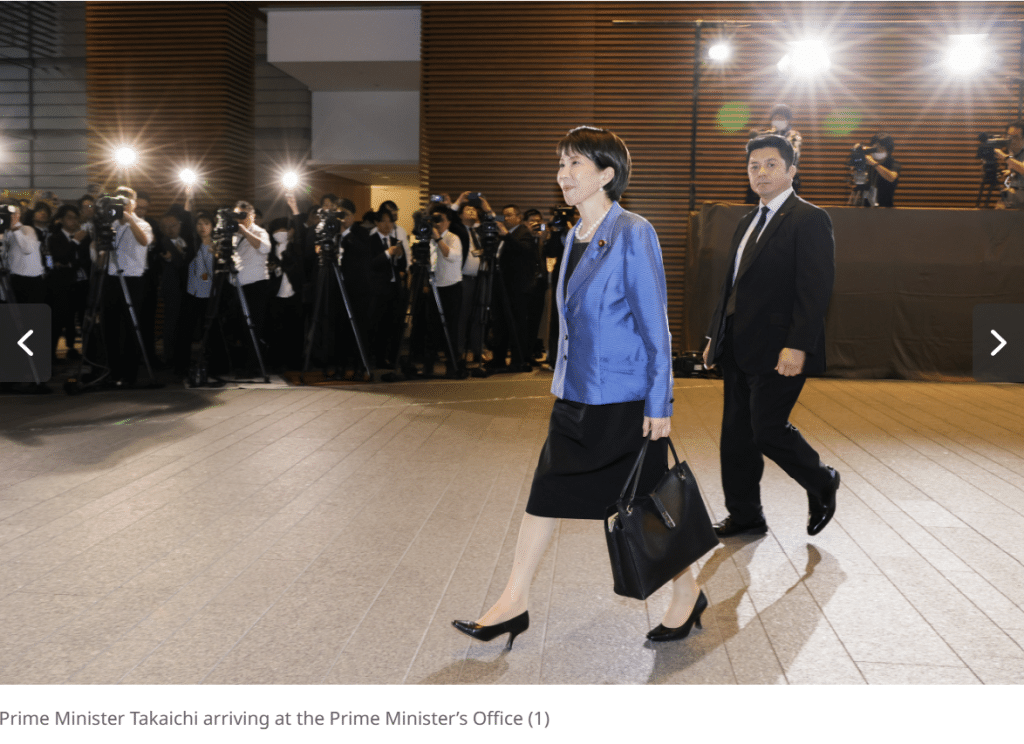Frank Wu: Why I Help Sherry Chen
The US-China Perception Monitor’s student journalists YuXuan Chen and Xiaoyi (Baker) Lu recently conducted an in-depth Zoom interview with Professor Frank Wu on a range of issues related to Chinese Americans and US-China relations. Wu is president of Queens College, City University of New York. He previously served as the William L. Prosser Distinguished Professor and Chancellor & Dean at University of California Hastings College of the Law. Wu was the first Asian American to serve in those positions at Queens College and UC Hastings.
Sherry Chen is a U.S. citizen who was arrested on spying charges in October 2014. In March the following year, all charges against her were dropped without explanation, but Chen’s employment in the National Weather Service was terminated on the basis of her arrest. She is currently suing the federal government in the United States District Court for the Southern District of Ohio.
USCPM: You wrote an article entitled My Friend Sherry Chen in 2017, which I thought was very touching. You said she resembles the people who visited your house when you were a kid growing up in the 1970s. It is this personal connection that you have lent a lot of help to her. Could you share more with us on the memories that were brought back by Sherry Chen when you were a kid?
Wu: I am a kid from Detroit, the “Motor City.” I am an American. I am a native born American. I always explain that at the beginning.
More than a hundred years ago, there was someone of Chinese descent named Wong Kim Ark. Most people don’t know about his lawsuit, even people of Chinese descent. But he went all the way up to the United States Supreme Court.
He had been born in San Francisco. During the era of the Chinese Exclusion Act, Wong visited China, and wanted to came back to his home in America, to his home, the authorities wouldn’t let him. He sued and claimed that ‘I am an native born citizen under the 14th amendment of the US Constitution. This actually is in the news these days because there’s some people who want to repeal that part of the 14th amendment and there are people who argue that even if you are born in the US, since your parents are immigrants, especially not documented, you do not qualify for citizenship. The reason I mention that is it gives people a sense where I am coming from, literally and figuratively. [Wu said in Mandarin that he is an American, born in America, raised in America, and thus a real American.]
I’ve spent my life and my career arguing that you can be, and I am in fact an Asian American. There really aren’t Asians in Asia. There aren’t many Europeans in Europe or Africans in Africa. What I mean is they generally don’t expressly identify with pan Asian identity or pan European or pan African. If you go to Shanghai or Seoul or Saigon, you ask people who you are and what your identity is in racial or ethnic terms, they are not going to say they are Asians. Instead, they will identify by nation, province, dialect, village, clan, religious faith, saying that they are Chinese or Korean or Vietnamese. In America, Asian Americans are born and come together.
Here, you may have heard the phrase, “You all look alike”. When you look at the hate crimes against people of Asian descent, it’s often mistaken identity twice over, what differences does it make: the ethnicity is wrong, as well as the citizenship. During the Covid-19 pandemic, there is a Burmese family attacked by someone with a knife in Texas who blamed them, despite their Burmese background, but Americans, for a virus which the person who assaulted them believed might be from China in origin. The most famous case is the killing of Vincent Chin, a Chinese American auto worker in Detroit in 1982 by two auto workers who happened to be white, and blamed him for the success of Japanese car companies, even though he was of Chinese not Japanese ancestry and even though he was an American, and working class, no different than them, also feeling the pinch of economic anxiety.
In Asia, the concept of Asian is associated with either militaristic imperialism or hopeless idealism. Japan during WWII had its East Asian Co-Prosperity Sphere. That was a euphemism for aggression and conquest. The idea was Japan would liberate all of its East Asian neighbors from the yoke of European colonialism to replace it with Japanese empire. Here, we’ve come together in bridge building, forming a coalition. It’s principled and practical. If you just go back three generations, these are people whose ancestors would have fought total wars against one another. They not only see themselves as separate, but there’s no love lost among them. But here and now, we see there’s the common cause, and that’s how Asian Americans came about.
Of course, in Asia people would not call themselves Asian Americans because they are neither Asian nor American. That’s not their identity. So, when I say I am an Asian American, I really mean both parts of that. It’s aspirational and ideal. But I also recognize that increasingly, there is the phenomenon of a Chinese diaspora that people don’t wish to be Asian American. They don’t want to blend in with other Asians, or other Americans. They embrace an ethnic nationalism, the ascent of China. If they talk about being here in America, it’s not that they live here, they would say they are temporarily here. They’re transients. They’re here to study a few years, maybe work a few years, but their heart belongs to China. [Wu used the Mandarin terms.]
I recognize that there’s a whole range of identities.
There are Asian Americans who are assimilated. They include adoptees raised by white parents. They include people of mixed backgrounds; there are many Afro-Asians, including a population descended from Chinese immigrants to places such as Jamaica. Some are sixth generation Californians. Many have had minimal contact with China. Yet there also is a Chinese diaspora who maintain significant relationships to China. Not all Chinese in America wish to be Asian Americans. This internal diversity presents challenges. I am respectful of all these communities. It isn’t a single Chinese American community. It’s many of them. This also isn’t different than other ethnic communities. If you look at Jews, European immigrants of a century ago or even today, and any demographic, you’ll see the same phenomenon. Some people are resolutely expatriots temporarily here; others are American through and through; some are half and half. Even within the same family, you see differences. Immigrant parents, and the grandparents, may lament that the American-born generation eventually, inexorably, becomes more like other Americans and less like their cousins overseas.
There are Chinese in China, there are Asian Americans in the US and the range in between. The undecided group of people are genuinely bilingual and bicultural. Their English is much better than my Chinese, because they can actually function professionally in an Anglophone setting. I can only say a few phrases in Chinese, and I can’t work professionally in China. I can say only a few phrases. I’m faking it. [Wu repeated that in Mandarin.] I am always interested in the way to reach out, to engage, to build bridges. And it is really sad in this moment of accelerating disengagement that would increase tension rather than decrease them. There are so many more Chinese people who are fluent in English and who could easily in New York or Los Angeles fit in, than there are Americans who could do that in reverse – and that include Chinese Americans.
In addition, people like Sherry Chen are immigrants. She’s actually a naturalized US citizen. She’d be an older sister to me our a cousin. She’s someone who is in her own way, represents Asian America. She represents a different era of migration than my family. She was wrongly accused by a co-worker of being a spy. But she is not a spy, instead, she has dedicated her life to helping the American public, working for the weather service, predicting floods. That’s as innocent an occupation as you could imagine. She is a naturalized citizen of this nation. She was an award winning employee. When she visited her mother in China, which should be applauded as good behavior by people of any background, being a good child to a parent, because we should all visit our mothers more often, when she returned a co-worker reported her as a spy. It’s wrong. She is innocent. She wasn’t just cleared of charges, the government just dropped all the charges. She then brought a civil suit.
I am contacted all the time by people who are in situations where they feel that they are being prosecuted or targeted because of the color of their skin, the texture of their hair, and the shape of their eyes. There are all these opportunities for us to help other people and in helping them, we advance our own ideals. I realized that all the charitable work I do, I see it as a duty, and I enjoy engaging in these projects. But it also protects me. It’s important to participate in the political process to advocate. Whenever I stand up and speak out for someone else, in some small way I am standing up and speaking out for myself. I am demonstrating that we are part of the body politic, that I am not a sojourner, not a tourist. There’s nothing wrong with being a sojourner or a tourist, but that’s not who I am. I am very much an American who has ideals that are American ideals. And I want to make them real, not just rhetorical.
Yuxuan is a college student majoring in International relations at New York University. Baker is a student in master’s program at School of Advanced International Studies at Johns Hopkins University.








